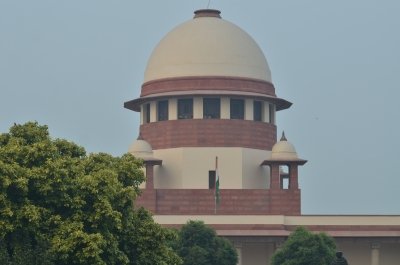
New Delhi, July 29 (IANS) The Supreme Court Collegium, headed by Chief Justice of India (CJI) B.R. Gavai, has recommended appointments of judges across six different high courts of the country.
The Supreme Court Collegium has approved the proposal for the appointment of judicial officer Vimal Kumar Yadav as a judge of the Delhi High Court.
In its meeting held on Monday, the collegium has also recommended the names of three advocates, Ajit Bhagwanrao Kadethankar, Aarti Arun Sathe, and Sushil Manohar Ghodeswar, for appointment as judges of the Bombay High Court.
It has also approved the proposal for appointment of Additional Judges – Justice Harinath Nunepally, Justice Kiranmayee Mandava @ Kiranmayee Kanaparthy, Justice Sumathi Jagadam, and Justice Nyapathy Vijay – as permanent Judges in the High Court of Andhra Pradesh, said a statement uploaded on the website of the apex court.
The Supreme Court Collegium has recommended that Justice Ravindra Kumar Agrawal be appointed as a permanent judge in the Chhattisgarh High Court.
It has also approved the proposal for the appointment of additional judges, Justices Partha Sarathi Sen and Justice Apurba Sinha Ray, as permanent Judges in the Calcutta High Court.
“Further, the Collegium has resolved to recommend that the following Additional Judges be appointed as Additional Judges of the High Court at Calcutta for a fresh term of one year: (i) Shri Justice Biswaroop Chowdhury, (ii) Shri Justice Prasenjit Biswas, (iii) Shri Justice Uday Kumar, (iv) Shri Justice Ajay Kumar Gupta, (v) Shri Justice Supratim Bhattacharya, (vi) Shri Justice Partha Sarathi Chatterjee, and (vii) Shri Justice Md. Shabbar Rashidi,” the statement said.
The Supreme Court Collegium has also approved the proposal for the appointment of Additional Judge Justice Gurusiddaiah Basavaraja as a permanent Judge in the Karnataka High Court.
The latest recommendations from the Supreme Court Collegium came as the Centre on Monday approved the appointment of 19 judges in the Telangana, Madhya Pradesh, and the Gauhati High Courts.
–IANS
pds/vd



